With the expanding availability of mushroom powders, capsules, extracts, and gummies it’s important to consider what you are purchasing, as well as what industry experts may not be telling you. To fully comprehend what a quality mushroom product is comprised of it’s best to educate yourself on the mushroom life cycle and learn about what’s inside the mushroom products you buy. So, without further a due, let’s dive in.
If you aren’t already aware, fungi are one of the most diverse groups of organisms on earth and many species are yet to be identified despite rigorous efforts put forth by mycologists (1). As a layperson, we know mushrooms best for their traditional cap and stem morphology that you can find above ground or in the supermarket, but this form marks only one stage of the mushrooms’ life cycle. Mushrooms start out as tiny specks called spores which give rise to mycelium which grow underground into a web of root-like filaments that are only one cell wall thick (2). This mycelium has a role in immunity as it helps defend the mushroom from pathogens as well as helping support the growth of the fruiting body (2). Although the fruiting body is delicious, its purpose is nature is actually as a reproductive structure similar to the flowers that bloom in the spring for bees to pollinate (2). These fruiting bodies produce billions of spores which are then released and find their way into a suitable new home for it to grow and produce more mushrooms (2). Unfortunately, the fruiting bodies do not last forever- in fact, they die quite quickly. For instance, oyster mushrooms rot in a few days but their mycelium can live on for decades underground where they continue to grow larger and larger in search for resources like nutrients and water to stay alive (2).
Although the mycelium contains a similar nutritional value to the fruiting body of the mushroom supplements there are vast differences between what they can do and which of the two you want in your supplement. The mycelium of a mushroom is not as concentrated nutritionally, and it fails to produce a lot of the beneficial natural compounds that the fruiting bodies do (1). Mycelium is often grown on grain and when it is extracted for use in our health products a lot of the grain often gets ground up with it (1). What does this mean exactly? Well, it means you are paying for a lot of filler and a lot of starch. For instance, the fruiting body of a mushroom contains about 30-40% beta-glucans whereas the mycelium only contains about 5-7% and can often contain zero (1). In addition, when mushrooms are grown on grain they have little to no ability to produce secondary metabolites, like triterpenoids, that we look for in a quality mushroom product (1).
For years mycologists have supported the use of mushroom fruiting bodies over their inferior mycelium counterparts. Not only is the fruiting body the most medicinally efficacious component of the mushroom but when you see “100% fruiting body” on a label you can guarantee that you have a concentrated quality product - much like what you can find at Eversio Wellness. If you are still unsure whether you have purchased a supplement with filler here are two helpful tips:
- Smell your supplements! True medicinal mushrooms have a distinct earthy, musty smell much like what you would expect from a mushroom. If you smell anything that resembles cereal or crackers, it’s likely that your product has a lot of filler inside and could have been extracted from mycelium (1).
- Do the iodine test! Although I presume most of you don’t have iodine at home, it is true that if you add a few drops of iodine to your mushroom powder and it turns black your product is high in starch (1). A good quality mushroom product won’t change colour (1).
Consider the science, read your labels, and know what you’re paying for. The benefits of functional mushrooms are available to us when we are informed about our choices.
References:
- Mushroom extracts: The mycelium vs. fruiting body dispute. North Spore. https://northspore.com/blogs/the-black-trumpet/mushroom-extracts-the-mycelium-vs-fruiting-body-dispute. Published October 5, 2021. Accessed November 14, 2021.
- Posted by Host Defense · March 10 2021. Why all host defense supplements are powered by mushroom mycelium. Host Defense Mushrooms. https://hostdefense.com/blogs/host-defense-blog/mycelium-explained. Accessed November 14, 2021.
Written by: Angelica Mastrodicasa – HBSc. UofT and 3rd Year Student of Naturopathic Medicine, CCNM-Toronto.

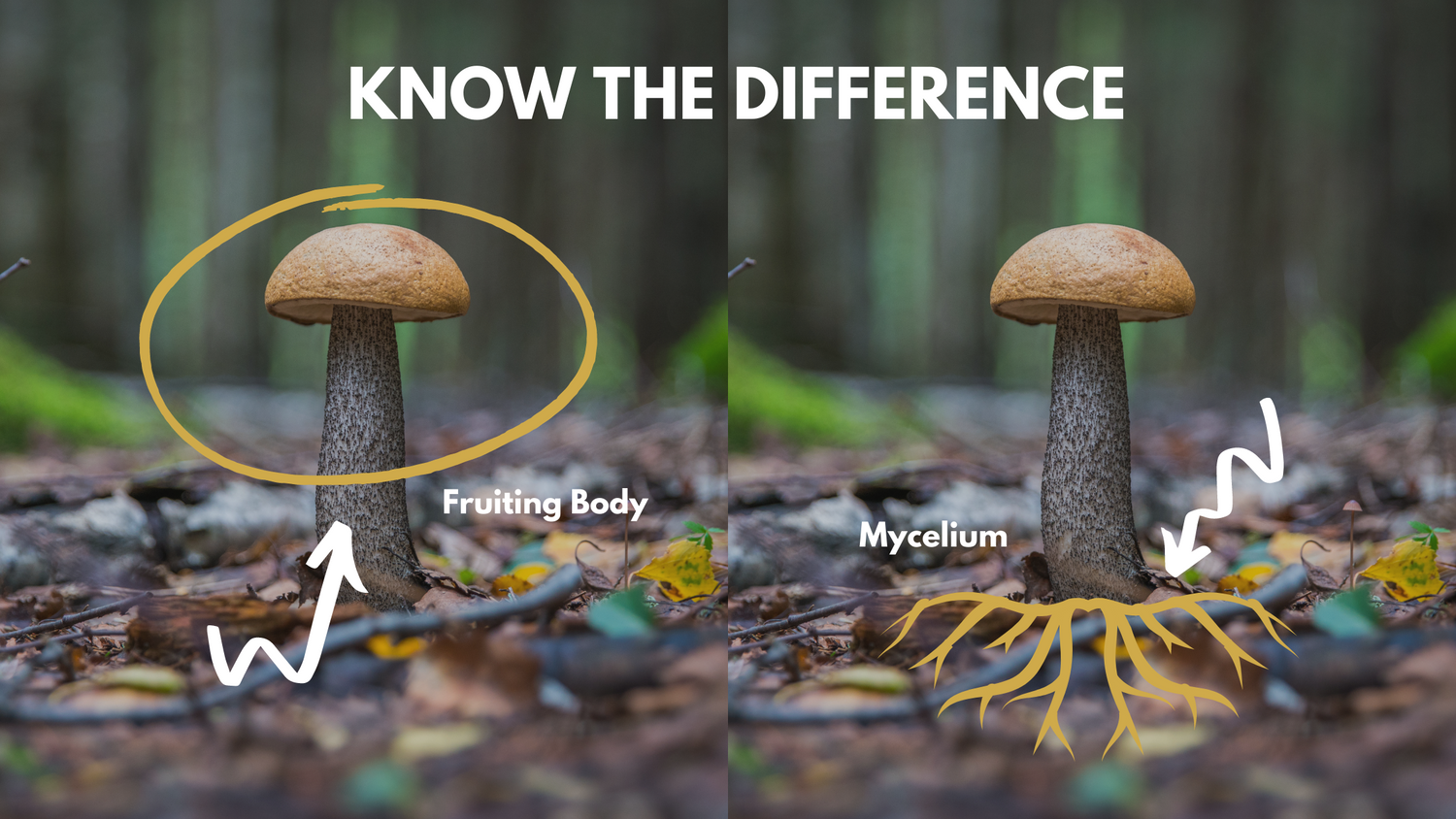
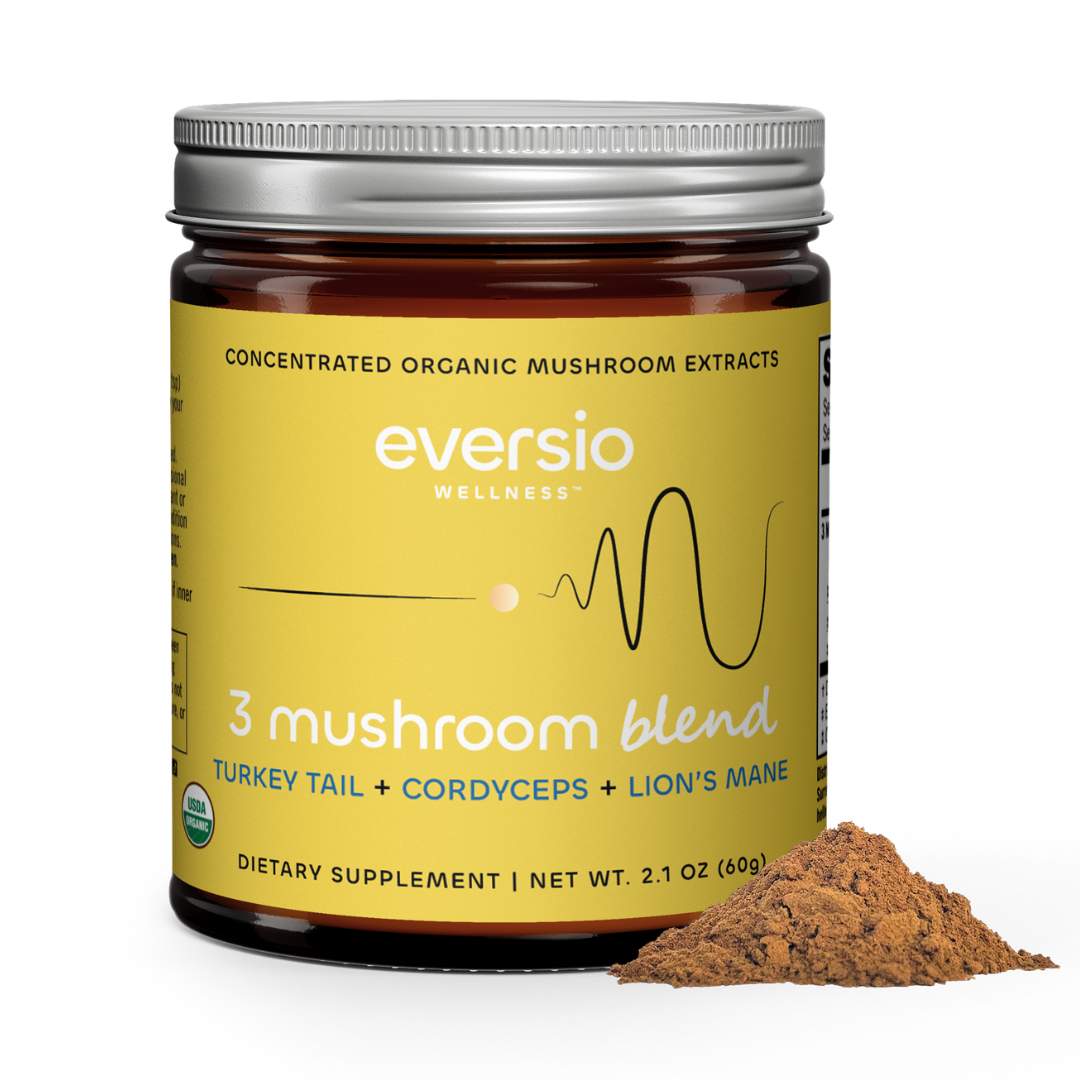
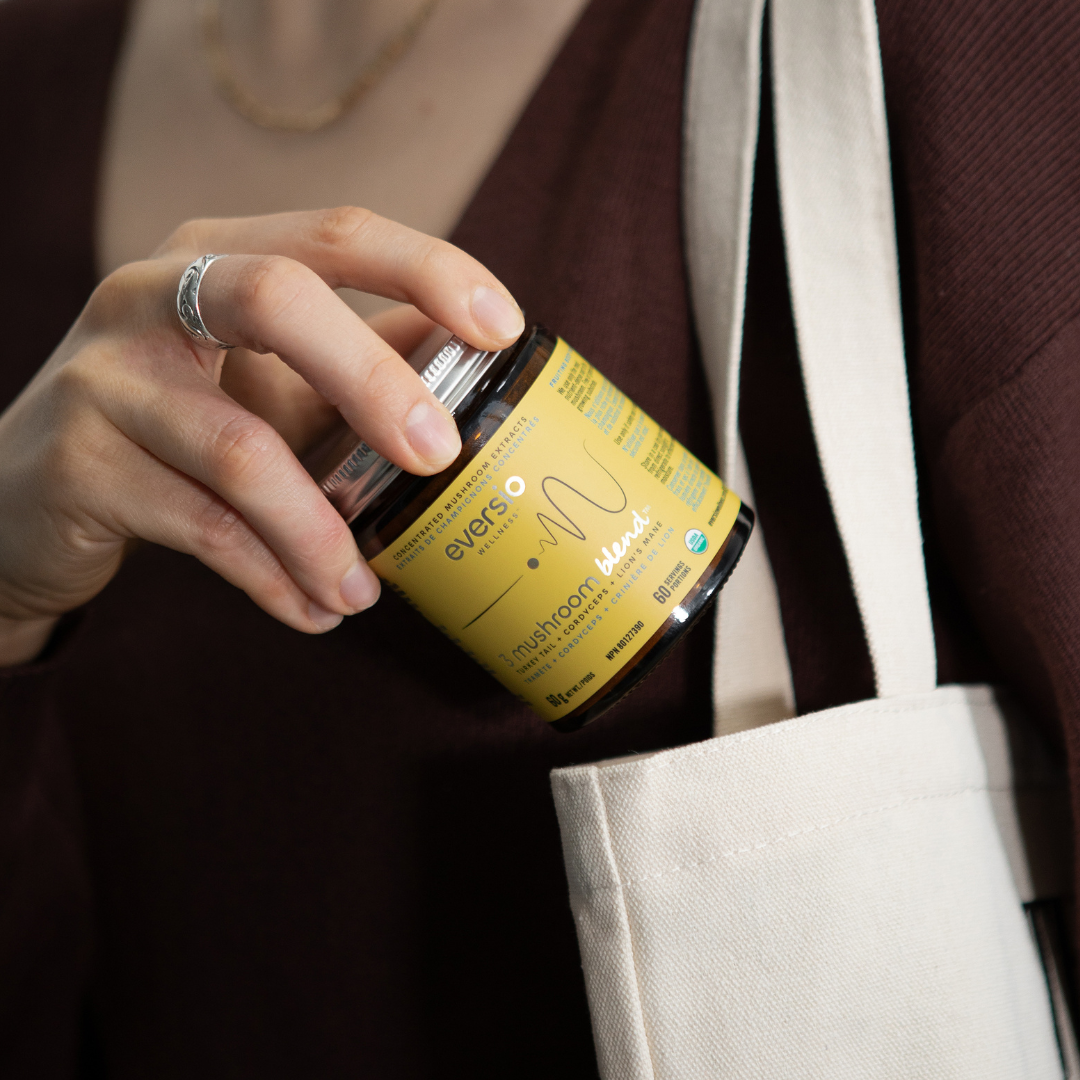

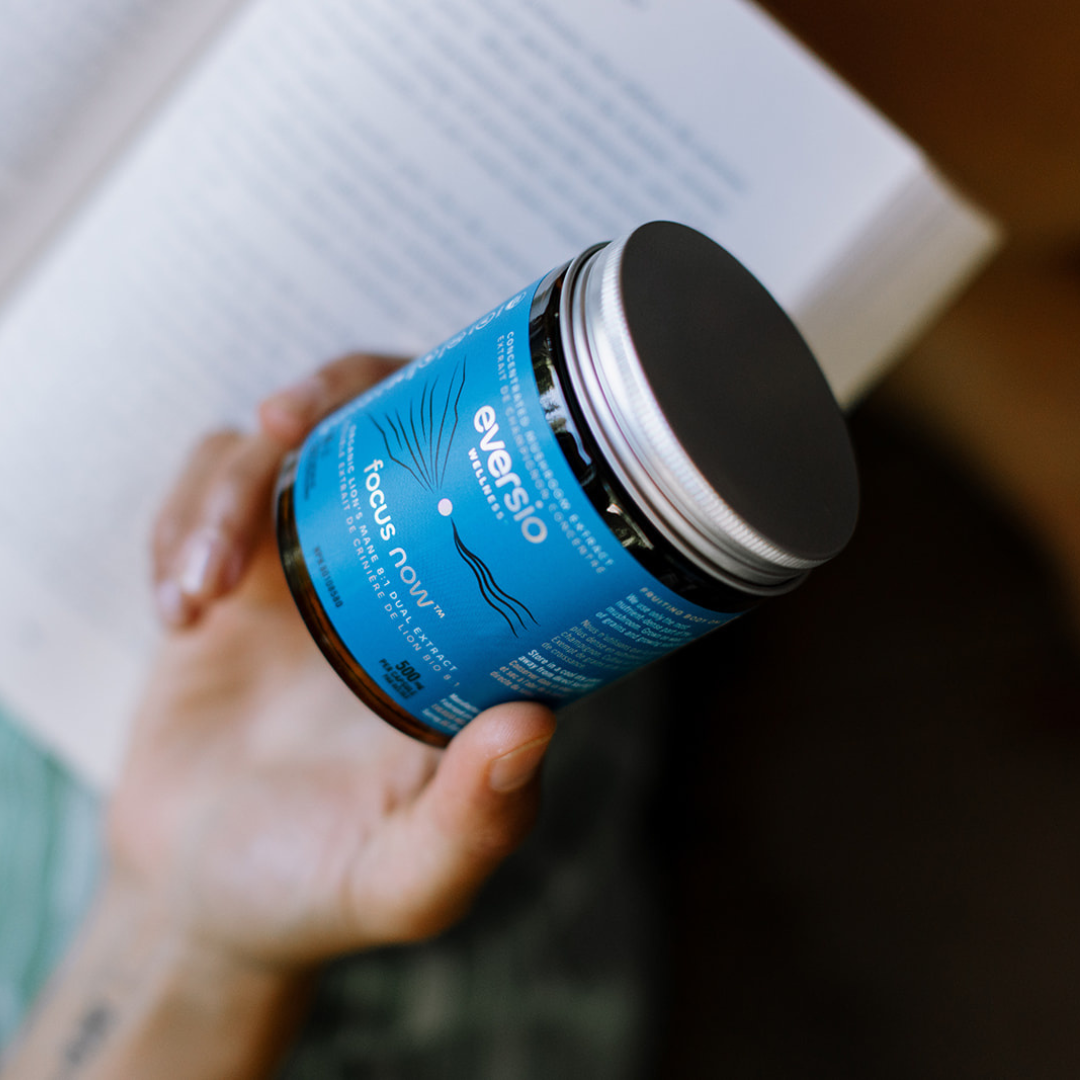
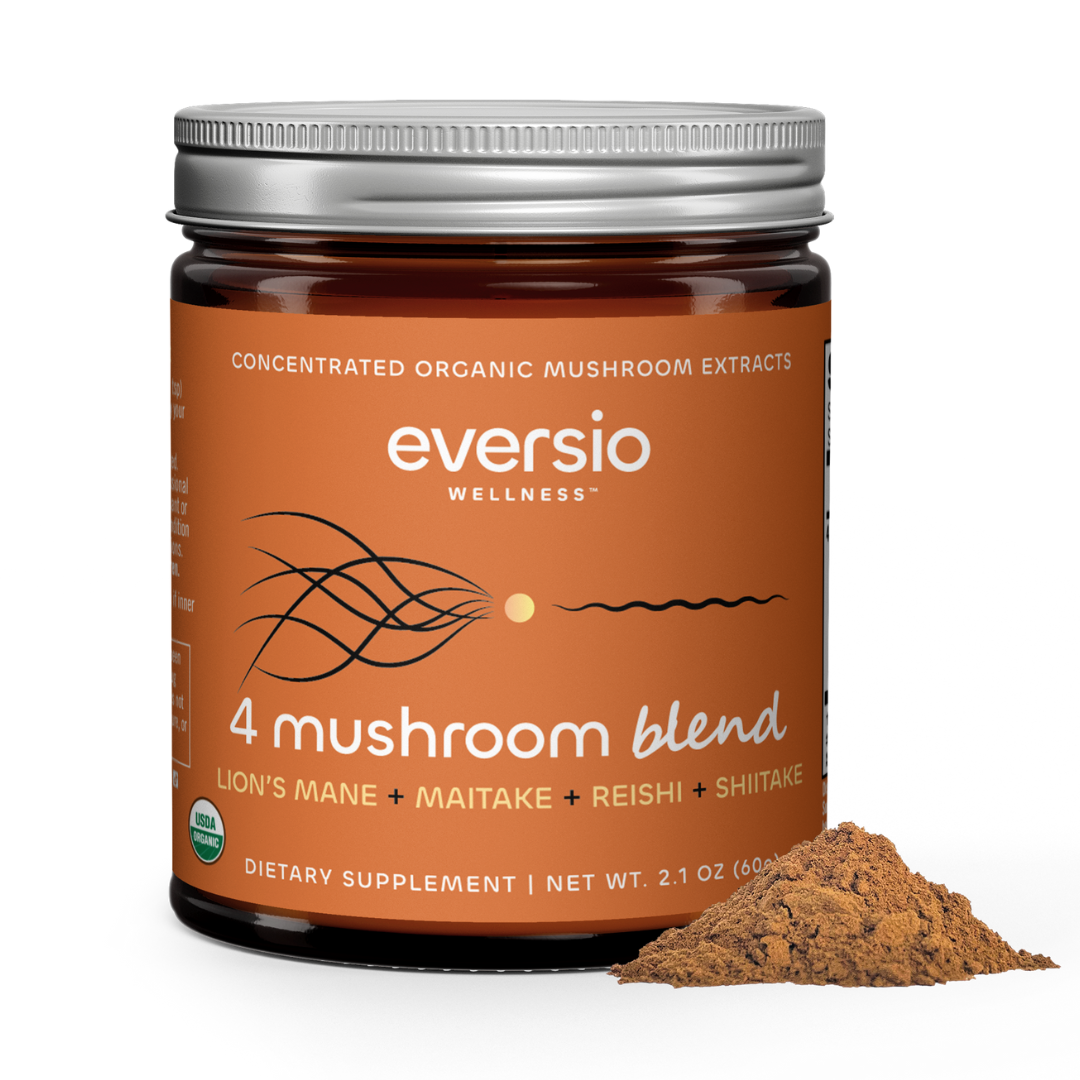
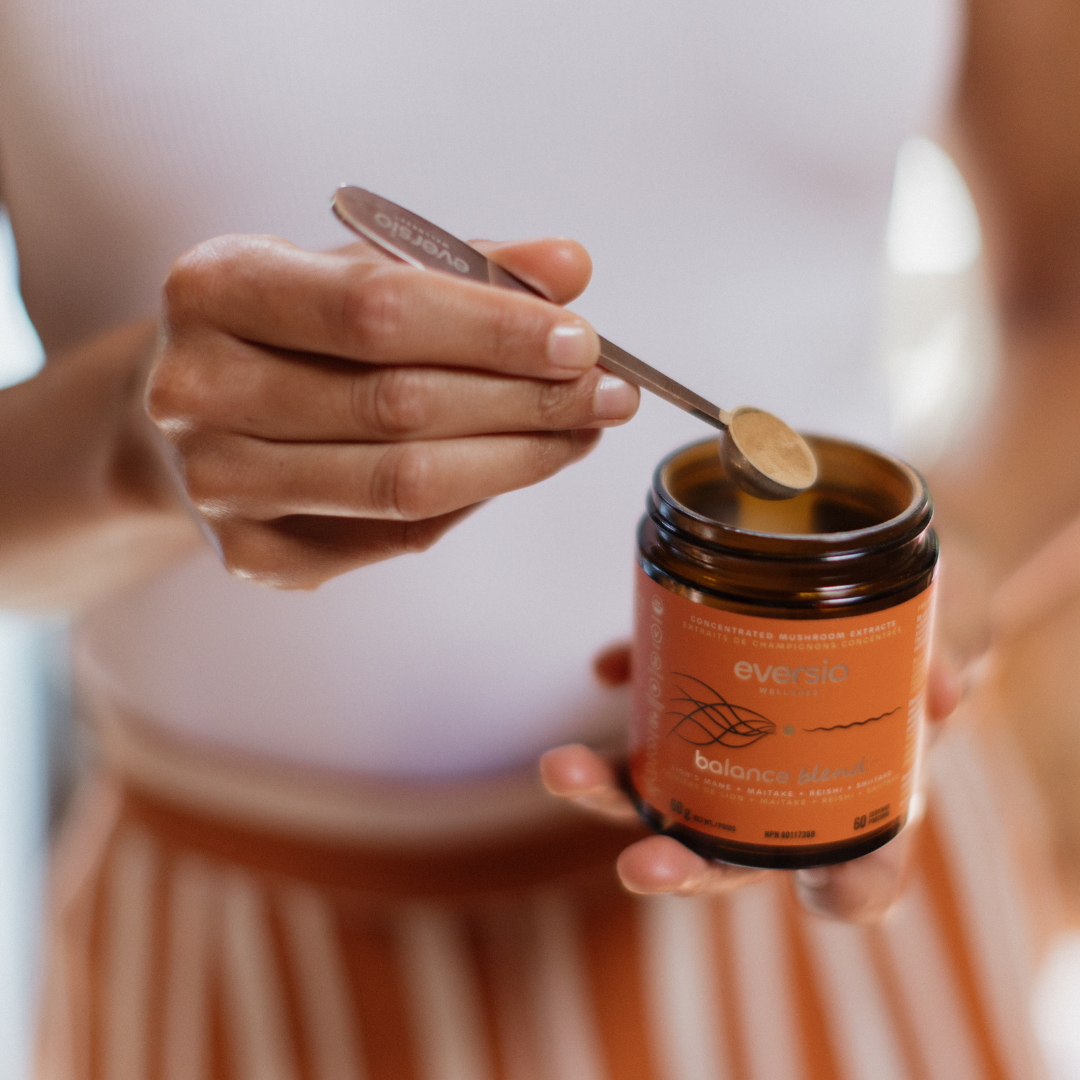
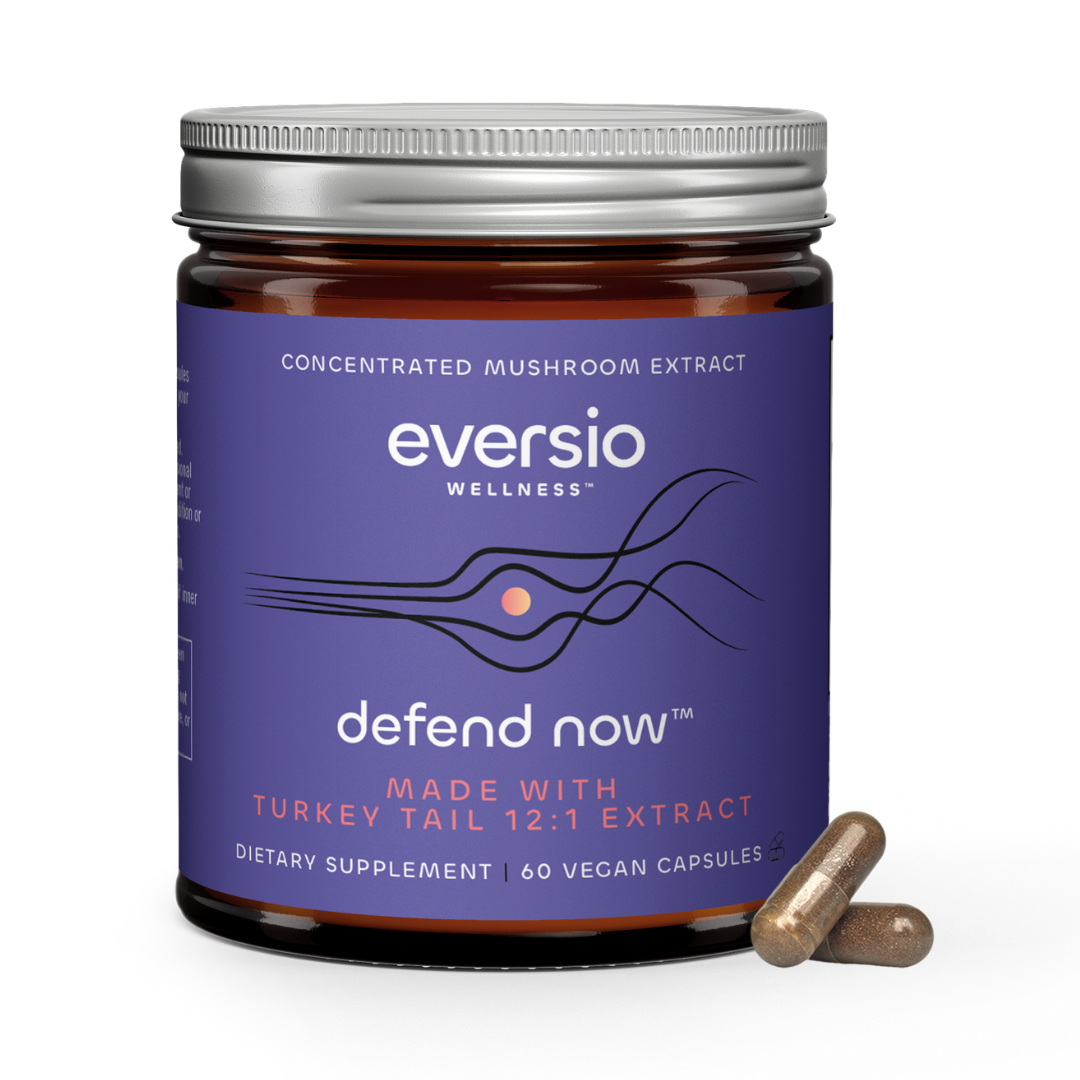
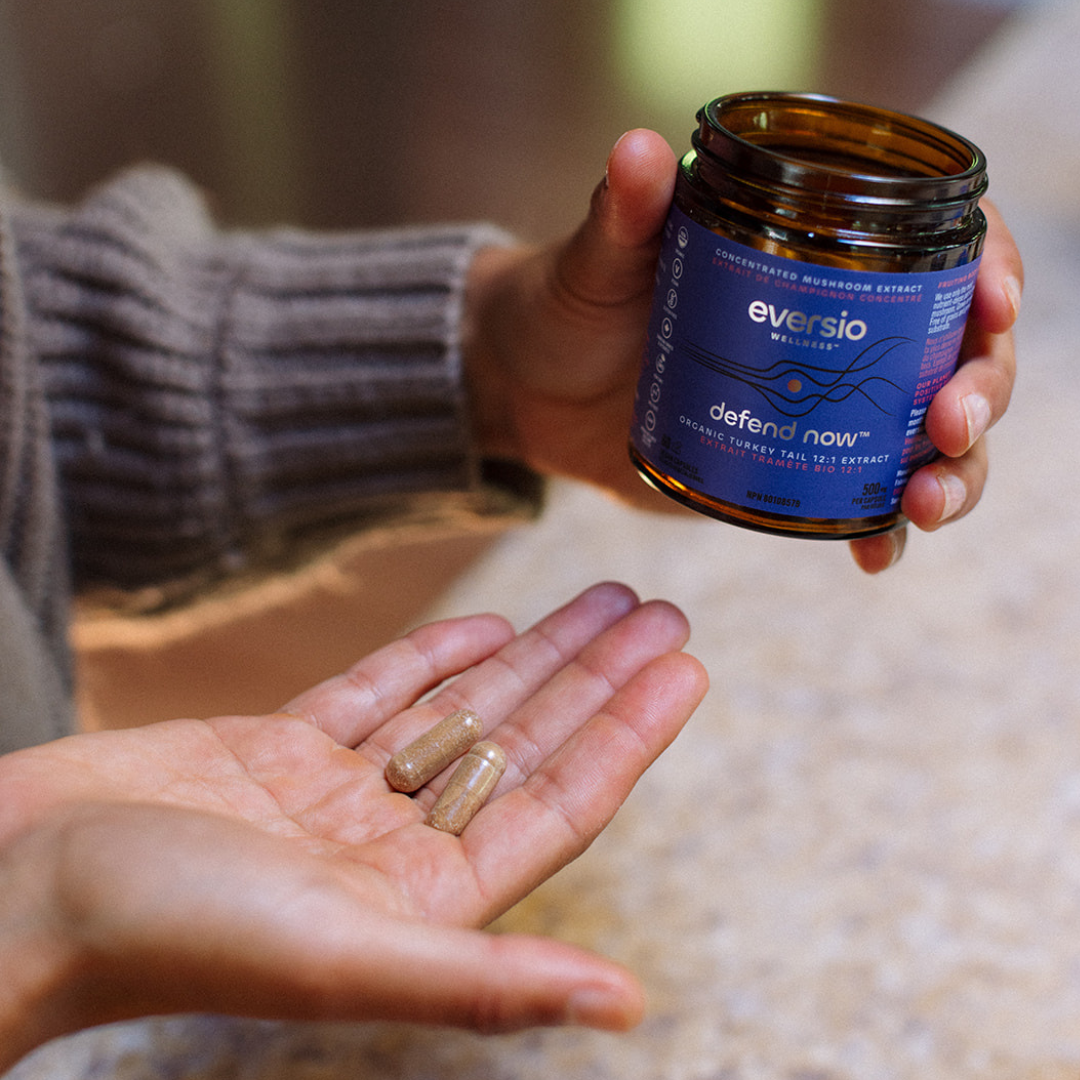
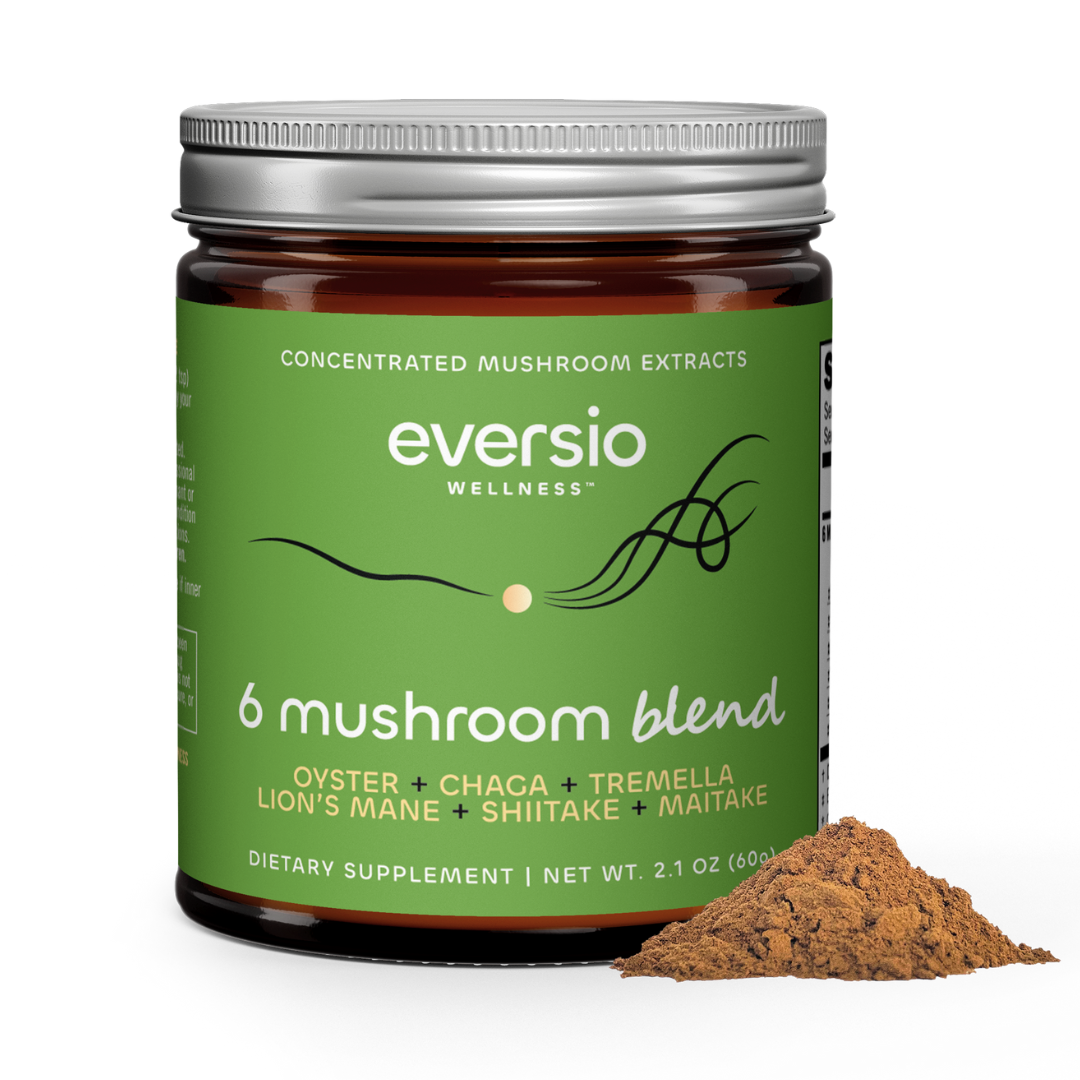
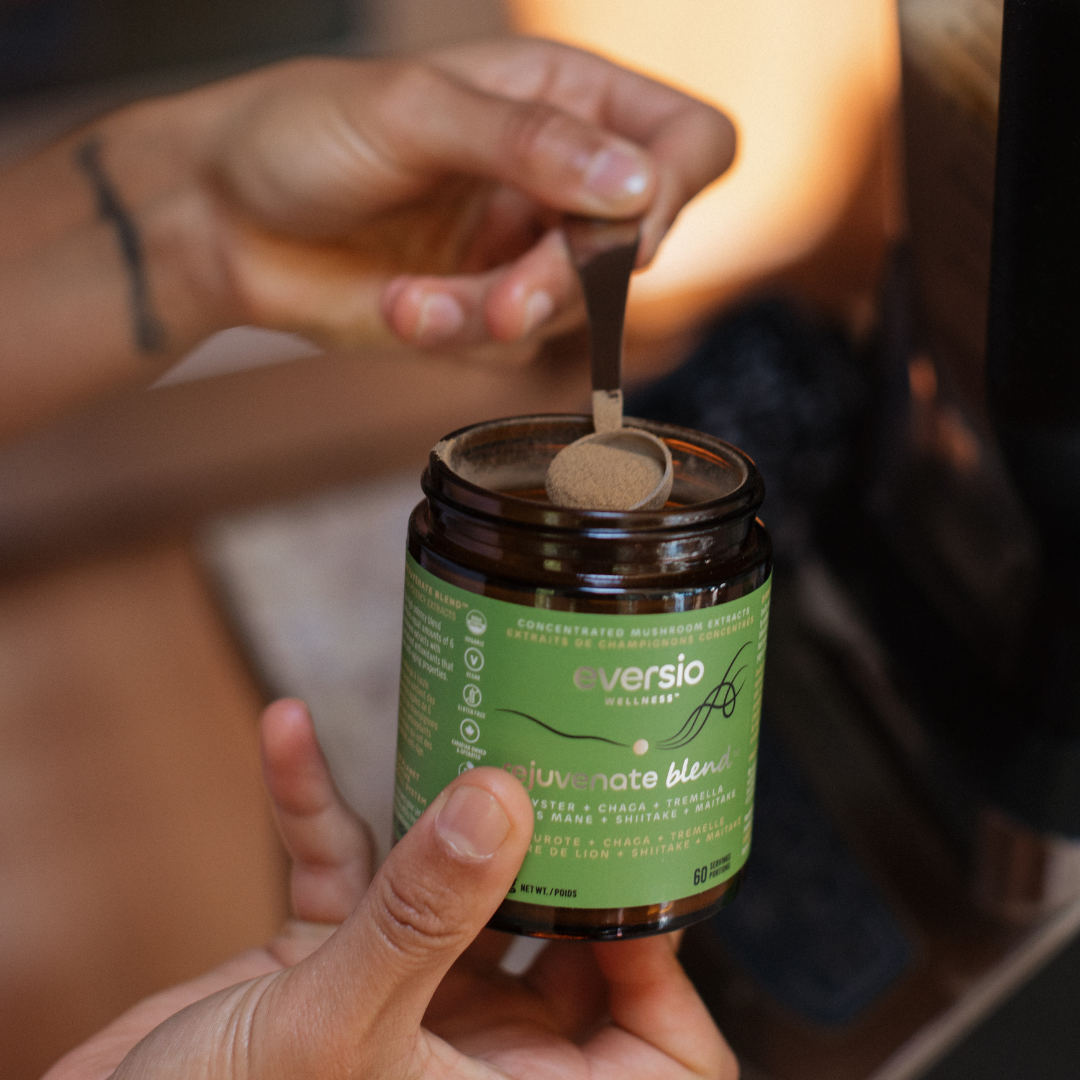


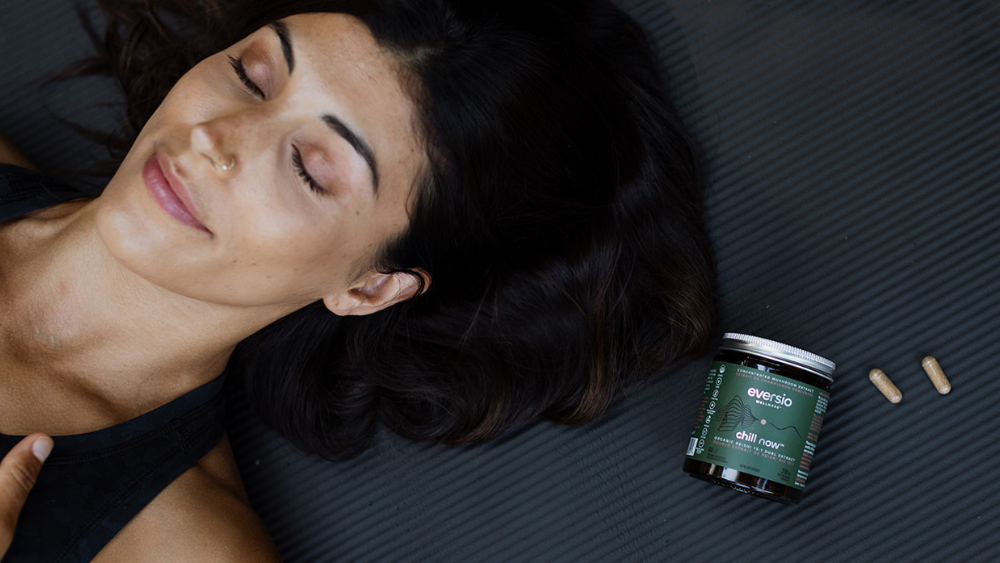





Leave a comment
All comments are moderated before being published.
This site is protected by hCaptcha and the hCaptcha Privacy Policy and Terms of Service apply.